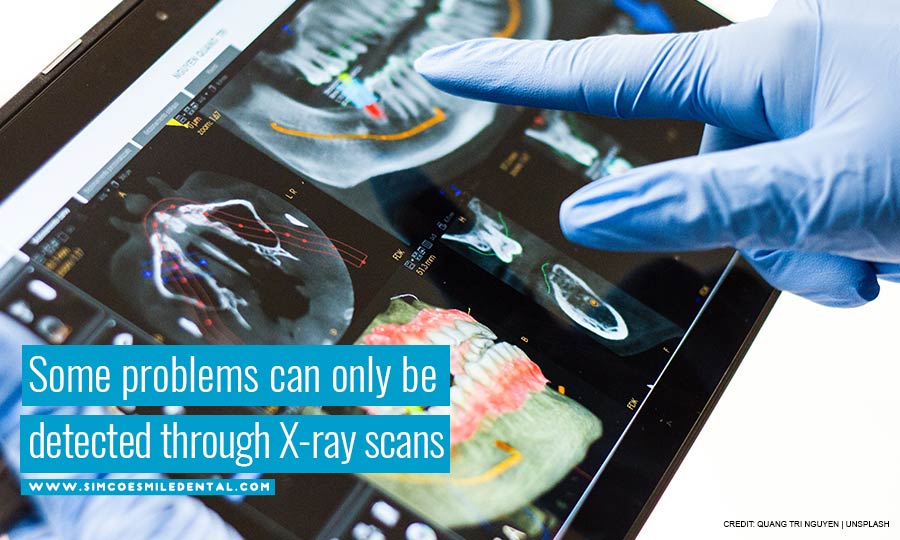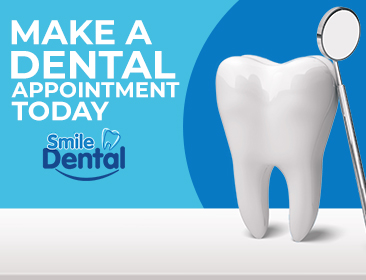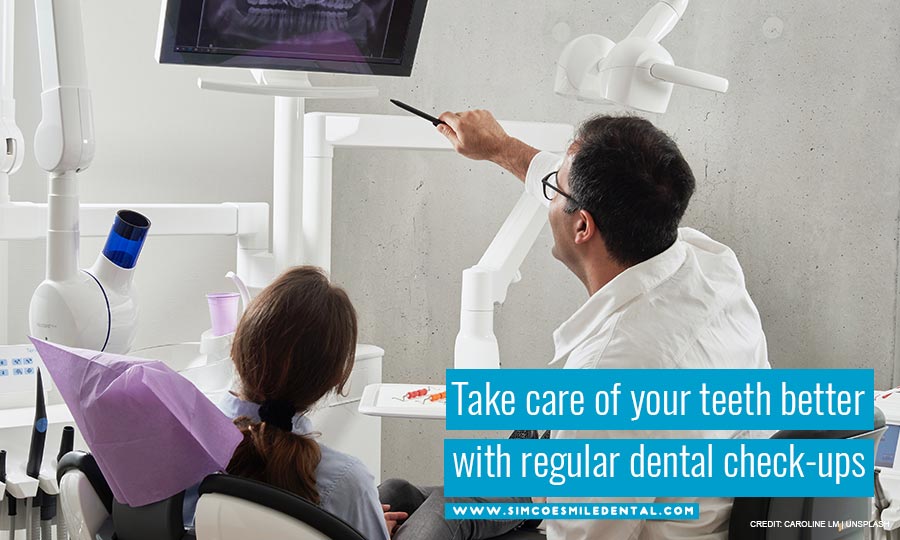The vast majority of individuals are aware of the need to visit their dentist on a regular basis. But according to Statistics Canada, 6.8 million Canadians skip the dentist primarily because of costs. That’s over 1/5 of the population avoiding getting their teeth checked.
Taking proper care of your teeth is one of the most important things you can do for your overall health. If you’re thinking of neglecting a dental check-up due to expense or another reason such as time or dental phobia, make sure you weigh all of the hazards In the long run, the cost of not visiting your dentist will almost certainly be far higher, both financially and psychologically.
Here are some of the most compelling reasons to book a regular dental check-up:
Why Dental Check-up Is Important?
- Clean Plaque, Tartar, and Cavities
Even the most meticulous daily brushers and flossers miss certain parts of the mouth. These areas neglected by routine brushing and flossing could accumulate plaque that could eventually harden into tartar, which is extremely hard to remove without professional assistance.
One of the benefits of dental visits is keeping tartar from eroding or causing holes in teeth. Cavities rarely cause any symptoms while they are developing. Instead, they manifest through minor discomfort once the tooth has already deteriorated. You will need to return to the dentist to have cavities and other dental problems filled and corrected once the harm has been done.
All of this can be avoided with routine cleanings that remove plaque and tartar before they cause damage. Cleanings are also less expensive than fillings, so it is better to have them before it gets worse and cost you more.
- Reduce the Risk of Gum Disease and Tooth Decay
Tooth decay is not your only problem when plaque and tartar accumulate. They can also damage the gum tissues of the mouth. Tartar could develop into an infection called gingivitis which affects the gum line and causes the gum to detach from the tooth. There will almost certainly be swelling, bleeding, or discomfort in the mouth. Gum disease causes the gum tissue and the bone that keeps the teeth in place to deteriorate. Teeth may loosen or fall out completely at this point, and a dental specialist may need to use extensive treatment measures to treat you.
Treatment of gum disease can entail surgery, extremely deep cleaning, and medication, depending on the severity. Regular dental cleanings are critical in recognizing and treating gingivitis before it spreads to other areas of the mouth.
- Detect Oral Cancer
Oral cancer is a very serious disease that can present in a variety of ways. Oral cancer is frequently misdiagnosed due to a lack of awareness of early warning signals, and it can swiftly spread and become life-threatening. Fortunately, an oral cancer diagnosis at an early stage is typically curable.
Your dentist is well qualified to recognize these signs and symptoms, and a dental check-up once a year at least greatly increases the chances of catching oral cancer early. Oral cancer must be detected early so it can be properly treated. While you may not detect oral irregularities, your dentist certainly will.
- Screen Problems with X-ray
X-rays of your teeth and jawbone are an important component of visiting your dentist every six months. It allows dentists to view what’s going on beneath the surface of your mouth and detect and diagnose problems that would otherwise go unnoticed, for example, an impacted wisdom tooth.
Damage to the jawbone, as well as any bone deterioration, inflammation, cysts, or tumours, can all be identified via x-ray imaging. It is crucial to identify these or any other severe oral disorders as soon as possible in order to effectively treat them.
Up-to-date X-rays and bi-annual exams are effective methods that can help you stay on top of your health, especially with damaging diseases that have few to no symptoms but could develop swiftly.
- Learn Proper Oral Hygiene
Another importance of regular dental visits is that they allow your dentist to keep track of your oral hygiene practice. While brushing and flossing may appear to be simple, you could be committing some frequent mistakes. These errors can have a variety of consequences for your dental health and can make your oral hygiene practice less effective. Your dentist may detect these impacts at your dental check-up and may be able to assist you in improving your everyday tooth care habits. - Save Money
Everyone wants to save money, which is why you should get regular dental checks. Dental examinations help prevent dental problems and treat them early on, reducing the need for expensive and invasive dental work. When compared to the expense of a root canal and crown, a dental filling is less expensive. Dental checks are also less expensive, while certain dental insurance plans may cover the expenses of semi-annual dental check-ups.
How Often Should You Have a Dental Check-up?
This question does not have a one-size-fits-all response. Many factors should be considered when planning a dental check-up. The following factors influence how often you should visit the dentist:
- Lifestyle and Habits
If you drink or smoke a lot, you might need to go to the dentist more often.
People who consume alcohol have a threefold increased risk of permanent tooth loss, according to studies, and tobacco use is connected to a variety of oral disorders. - Behaviour and Attitude
Your dental health will improve if you are committed to good oral hygiene. The more you devote yourself to maintaining the health of your mouth, teeth, and gums, there’s a lesser chance that you will need to visit the dentist frequently. - Biology and Genetics
There are some aspects of your dental health that you will be unable to modify.
If you’re prone to cavities, you’ll have to take extra precautions to avoid them.
If you have a family medical history of certain oral disorders, you will require extra care from your dentist. - Access and Availability
Preventative measures are beneficial, but if you can’t get to the items and services you need to maintain your oral health, you’re more likely to require frequent dental examinations.
People with no dental problems should see their dentist twice a year, while those with dental disorders may need to see the dentist as often as 3 to 4 months, depending the dentist’s recommendations.
While most individuals dislike visiting the dentist, those who choose not to have regular dental check-ups may end up regretting their decision later on. Those who do not see their dentist regularly are putting their oral health at risk, which can give rise to other health issues.
Make sure to have your mouth checked every 6 months. For a trusted family dentist in Oshawa, turn to Simcoe Smile Dental. Call us at (289) 312-1482 today!




